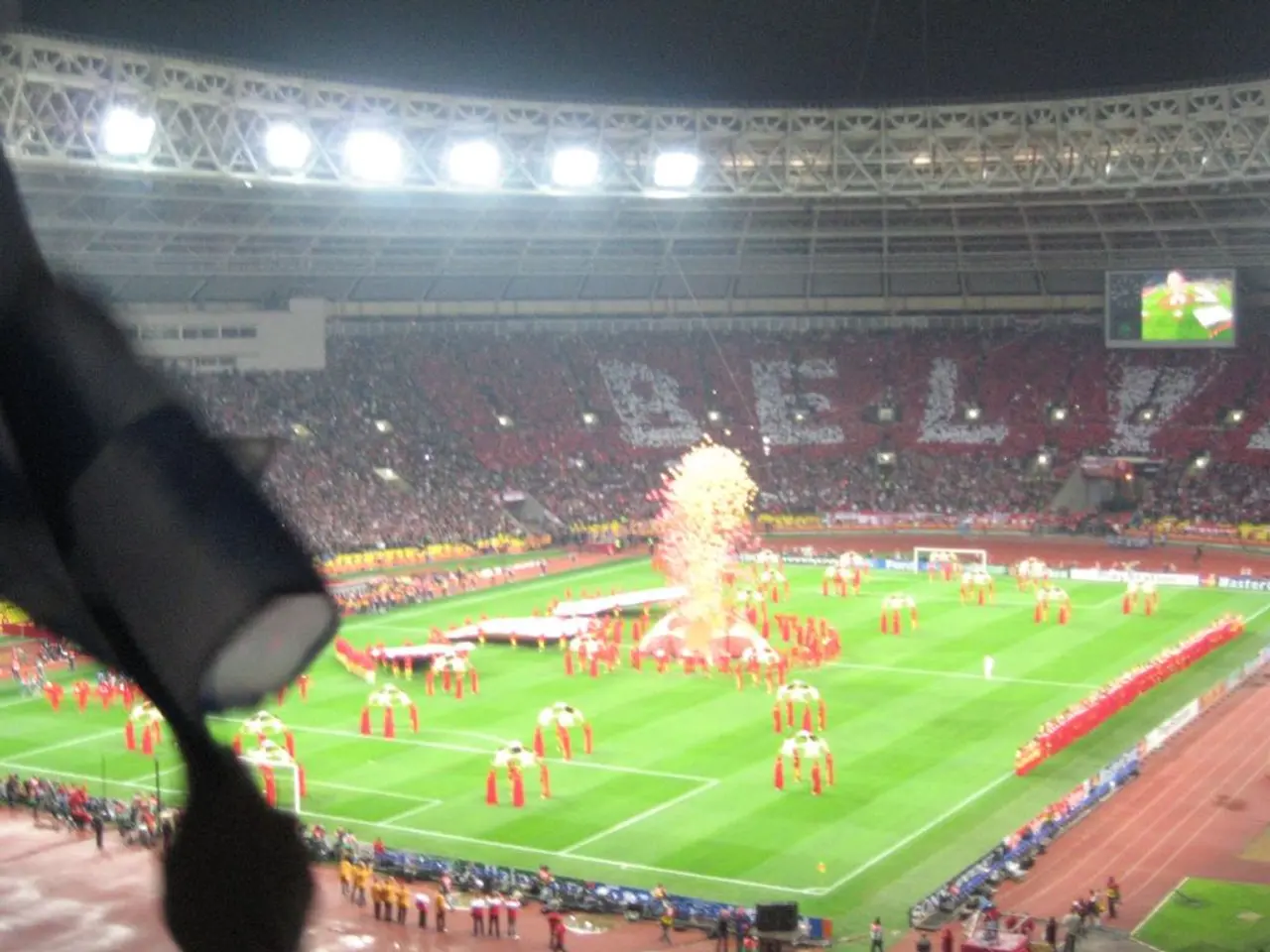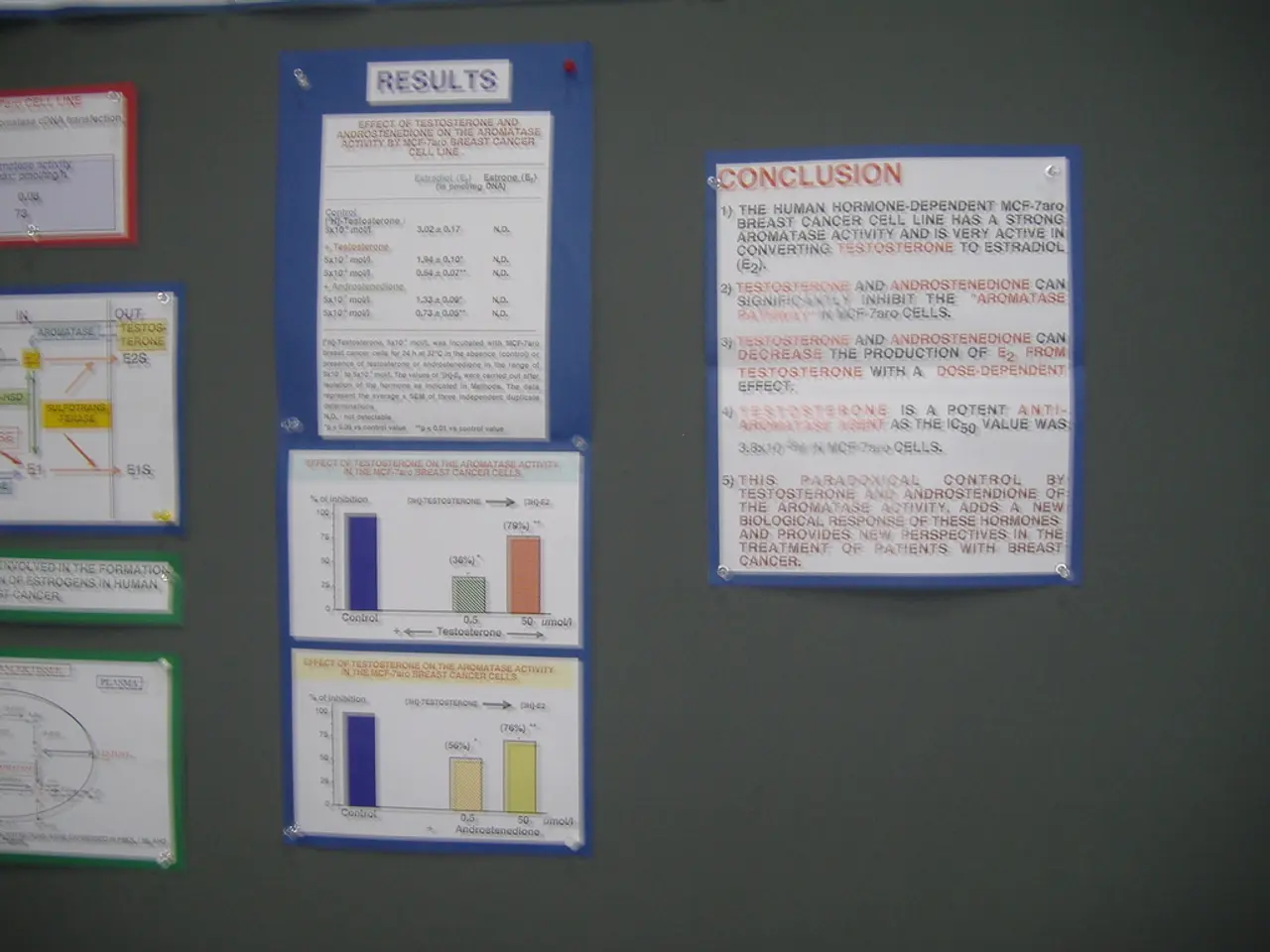Exploring the Controversial Past of Josef Ollig: Composer of FC St. Pauli's Iconic Anthem
Delving into the Complicated History of the Writer Behind a Symbol of Resistance
Background
Football Club St. Pauli shares details on the composer of their cult hymn - FC St. Pauli shares the lines of its provocative club anthem, sparking debate among fans and critics alike.
Josef Ollig, born in 1906, is renowned as the creator of "Das Herz von St. Pauli," FC St. Pauli's stadium anthem. However, ongoing research into Ollig's political views and affiliations during the Nazi era has highlighted a concerning past.
The St. Pauli Anthem and the Club's Culture
- The anthem represents unity and camaraderie, sung by fans during matches to embody the spirit of the club.
- FC St. Pauli is renowned for its anti-fascist, left-wing fan base, making the origins of the club's anthem stand out in contrast to its modern values.
Allegations of Ollig's Support for National Socialism
- Evidence points to Ollig's active endorsement of the National Socialist regime during the 1930s and 1940s, as presented through archival records, such as membership lists, letters, and public statements.
- His compositions and activities during this time may have strengthened or mirrored Nazi propaganda efforts and cultural objectives.
Addressing the Paradox: Legacy vs. Political Identity
- Given FC St. Pauli's contemporary reputation as a beacon of resistance against right-wing extremism, the association with a composer who supported the Nazi system creates a conundrum.
- The club and its supporters have responded to the historical quandary by actively engaging in dialogue and educating one another, upholding their commitment to the fight against fascism.
The Importance of Investigating Historical Figures' Political Affiliations
- Examining the political leanings of historical figures, like Ollig, contributes to a more comprehensive understanding of cultural history.
- This exploration emphasizes the intricate relationships between individual legacies and broader societal and political movements.
- Historical accuracy in the context of ethical and political values is essential to safeguarding cultural commemorations and building a more inclusive understanding of the past.
Conclusion
Josef Ollig's connection with National Socialism serves as a crucial discussion point for evaluating the complexities surrounding the legacy of individuals and the symbols they create. Despite composing the club's cherished anthem, Ollig's documented support of the Nazi regime challenges FC St. Pauli and its supporters to delve deeper into their origins and maintain a firm stance against fascism.
Should you desire assistance in tracking down particular historical documents or articles about Josef Ollig, or help in crafting a presentation or research paper on this topic, I'm here to help!
- Given the controversial past of Josef Ollig, who composed FC St. Pauli's iconic stadium anthem, it is important to research his political affiliations during the war-and-conflicts era, particularly in the context of policy-and-legislation and politics.
- Vocational training in various academic fields, such as history, could provide valuable insights into the documentation of historical figures like Josef Ollig, offering a clearer understanding of their associations and influences on culture.
- As critics delve into the paradoxical history of Josef Ollig, they should compare his documented support for the Nazi regime with the anti-fascist values promoted by FC St. Pauli and its supporters.
- The European leagues, including the premier-league, could engage in discussions on historical figures like Josef Ollig, fostering a broader understanding of their influences on sports and the cultures surrounding them, in addition to promoting general-news and sports-related content.








